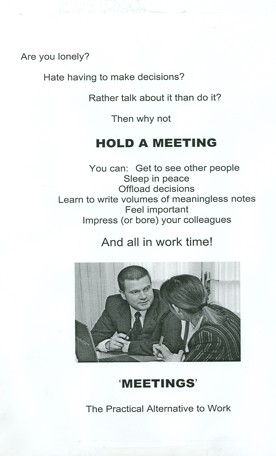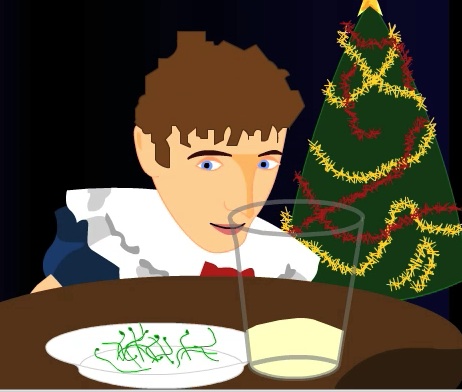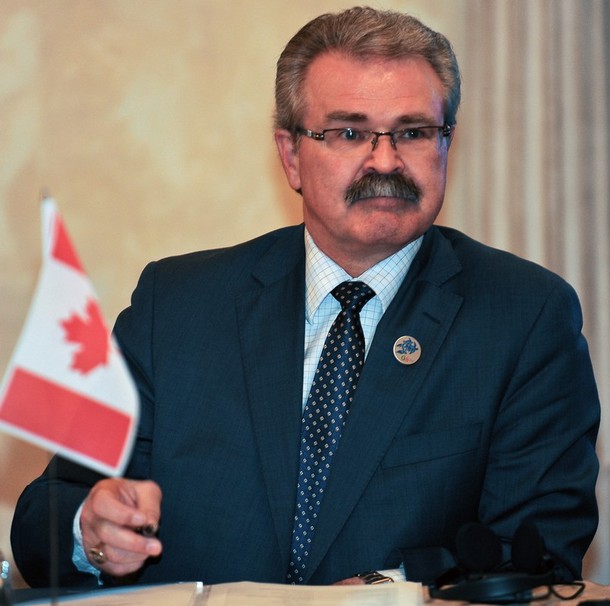After the Jack in the Box E. coli O157:H7 outbreak of 1993, the one that placed microbial food safety on American TV dinner plates, the company hired Dave Theno and developed an industry leading food safety program.
A year after Maple Leaf cold-cuts killed 22 and sickened 53 in Canada, the company announced it has launched a new web site and that consumers need to do more.
.jpg) I’m not making this up.
I’m not making this up.
On Friday, Maple Leaf CEO Michael McCain (right, exactly as shown), on his Journey-tribute band path to food safety leadership, said,
“There’s lots we can and are doing to become a global food safety leader and it’s our job to make food as safe as possible, but there’s also lots that consumers can do to further protect themselves and their families and practice good food safety.
“This week we launched a new Maple Leaf website which is a huge leap forward in reaching consumers. Its taken us over two years in the making and it’s a great site with neat gadgets like meal planning tools, recipes, cooking and shopping tips, and most importantly food safety insights through clicking on ‘food safety at home’ at the top right of the home page.
“I think this website is one of the coolest food sites out there, it’s interactive, informative and highlights where Maple Leaf is going as a company. We hope you will visit and welcome your feedback!!”
People that write with not one, but two, exclamation marks, are doubly desperate to get attention. It’s like double dick fingers. Dude, since you think it’s such a cool food site, and since you devoted two years of resources to this complete waste of Internet surfing, if I was a shareholder wondering where this company was going, I’d be yelling SELL, SELL, SELL!!!
(note the all CAPS and triple exclamation marks)
Companies like Jack in the Box recovered because they did the right thing – and didn’t blame consumers. Provide meaningful information to consumers, especially those at risk, like pregnant women and older folks. Make your test results public. And try not to write total bullshit like, our new website “is a huge leap forward in reaching consumers,” when you have no evidence to prove such assertions other than wine-soaked dreams at the cottage.

 The Public Health Agency of Canada (PHAC) is working with provincial and local health authorities, Health Canada and the Canadian Food Inspection Agency (CFIA) to investigate cases of Listeria monocytogenes in Canada.
The Public Health Agency of Canada (PHAC) is working with provincial and local health authorities, Health Canada and the Canadian Food Inspection Agency (CFIA) to investigate cases of Listeria monocytogenes in Canada..jpg) "The Government of Canada’s highest priority is the safety of Canadians. We are making significant investments to hire more inspectors; update technologies and protocols; and, improve communication so that Canadians have the information they need to protect their families."
"The Government of Canada’s highest priority is the safety of Canadians. We are making significant investments to hire more inspectors; update technologies and protocols; and, improve communication so that Canadians have the information they need to protect their families." • improve coordination among federal and provincial departments and agencies;
• improve coordination among federal and provincial departments and agencies;.jpg) So many little tips that a bunch of $50-150K per year salaries sweated over.
So many little tips that a bunch of $50-150K per year salaries sweated over. I’ve made it a point to say in my talks lately, when I talk about food safety, I’m talking about food that doesn’t make people barf. Food safety means lots of things to lots of people, but I’m focused on the microbes that sicken up to 30 per cent of all citizens of all countries every year (that’s what the World Health Organization says).
I’ve made it a point to say in my talks lately, when I talk about food safety, I’m talking about food that doesn’t make people barf. Food safety means lots of things to lots of people, but I’m focused on the microbes that sicken up to 30 per cent of all citizens of all countries every year (that’s what the World Health Organization says).(2)(1).jpg) First it was Canadian Agriculture Minister Gerry-isn’t-my-moustache-awesome Ritz joking that he was dying by a thousand cold cuts.
First it was Canadian Agriculture Minister Gerry-isn’t-my-moustache-awesome Ritz joking that he was dying by a thousand cold cuts. On Aug. 9, 2009, the Canadian Food Inspection Agency announced
On Aug. 9, 2009, the Canadian Food Inspection Agency announced.jpg)
 So when CFIA announced a few minutes ago
So when CFIA announced a few minutes ago.jpg) Same with the orgy of listeria-in-Canada coverage following the release of the Weatherill report yesterday. Almost all of the commentary and analysis borders on the banal (the dictionary says banal means “so lacking in originality as to be obvious and boring,” so for once I used a word properly) but a few things stand out:
Same with the orgy of listeria-in-Canada coverage following the release of the Weatherill report yesterday. Almost all of the commentary and analysis borders on the banal (the dictionary says banal means “so lacking in originality as to be obvious and boring,” so for once I used a word properly) but a few things stand out: A: Well as you know, I’m not involved in the day to day operations, so I can’t speak to the stress of the front line operators.
A: Well as you know, I’m not involved in the day to day operations, so I can’t speak to the stress of the front line operators. (2).jpg)